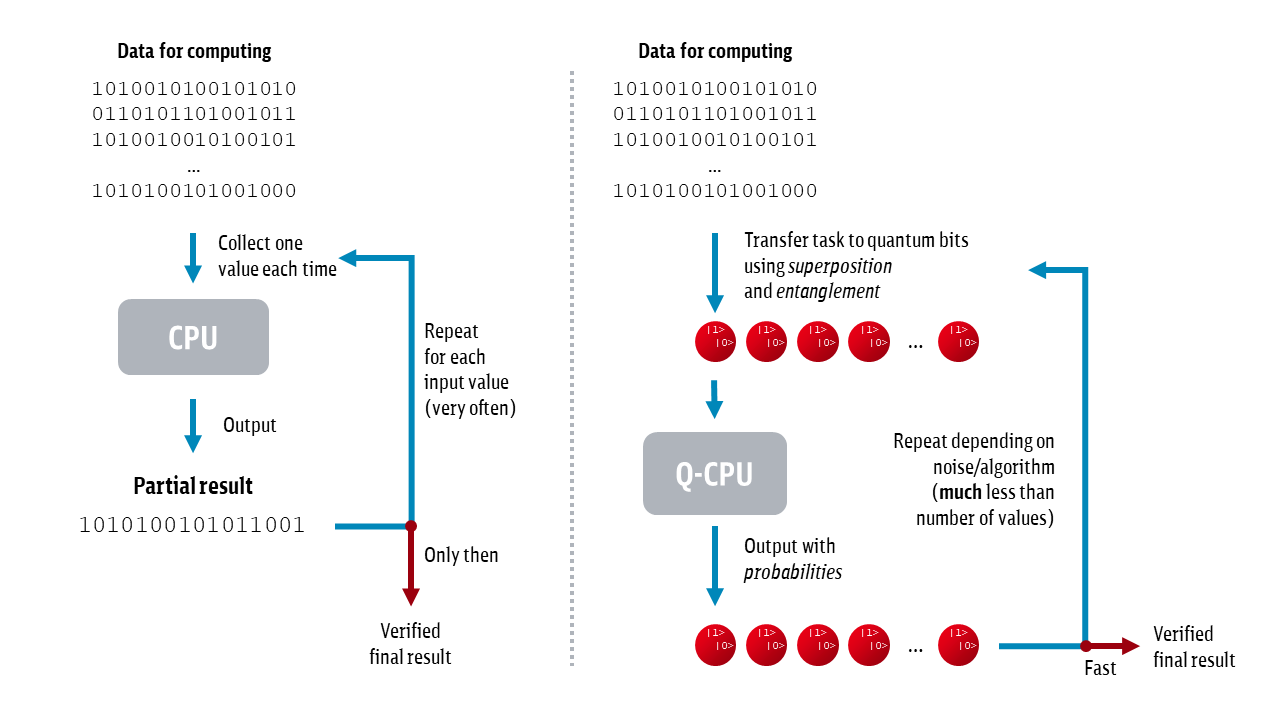Article: Preparing today for the computing opportunities of tomorrow
Quantum computers have enormous potential. That is why we have already been conducting research into quantum computers since 2019, examining possible fields of application as well as possible risks. In the PlanQk EniQmA research project, we are investigating concrete use cases in scheduling and how these can be solved in the combination of quantum computers and classical computers. This has enabled us to build up the Group's own expertise and conduct a lively exchange of ideas with industry and research partners on an equal footing.
"With our quantum and crypto experts and collaboration with industry and research, we can recognise at an early stage what is reality and what is hype so we can safeguard our IT and OT and leverage the optimisation potential in our systems."

Quantum expertise for Deutsche Bahn
We are embedded in the national and international ecosystem for quantum computing and are therefore making an important contribution to the future viability of the railway. That is because we have the opportunity to use forward-looking IT, for example to make Deutsche Bahn's planning and dispatching more efficient and more comprehensive than has been possible up to now. At DB Systel we are happy use our expertise to support DB business units in assessing products available on the market and checking their feasibility.
Quantum computers operate on quantum bits, which enable completely new types of algorithms based on superposition and entanglement.
What is quantum computing?
Simply put: quantum computers recognise more than just zeros and ones. They use the effects of superposition of states at the atomic level. Their calculations are based on probabilities, not on digital values and states.
How much faster are quantum computers?
The speed depends on the problem. Traditional computers will continue to be used for regular calculations. However, there are some mathematical challenges that cannot be tackled in a viable way without quantum computers as today's supercomputers would need thousands of years to complete the task.
When can quantum computers be put to viable use?
No one can say for sure. Expert estimates range from five to ten years. The high speed of development, coupled with very high levels of investment, puts the timing in the near future.
How will quantum computing be implemented from a technical point of view?
Companies are working with different approaches. There are superconducting chips used by Google and IBM, for example. Ion traps, photonic chips and crystal lattices with crystallographic defects also promise benefits impacting various aspects of the complex technical implementation.
Protecting the IT security of the future
Quantum computers come with their own challenges: they could make today's encryption methods obsolete. But we're working on it! Are there risks for Deutsche Bahn and how do we have to prepare? The potential threats require us to "quantum-proof" DB's IT and OT even before quantum computers are operational.
Do you have any questions about quantum computing, its potential, challenges or specific products on the market? We are happy to support you with our years of experience of from research and market observation.

